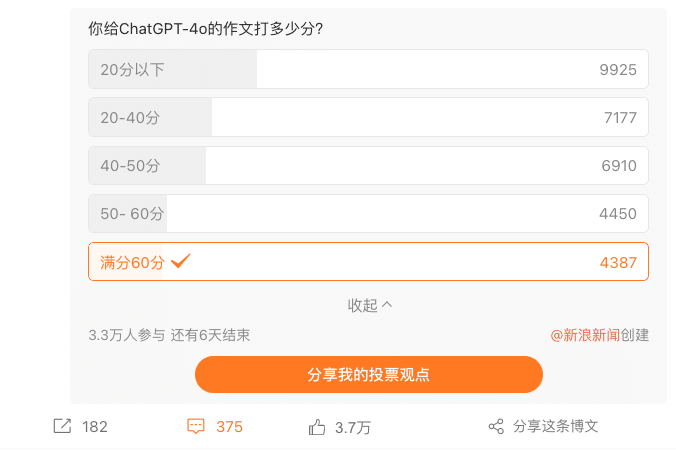China Digital
WeChat for the Workplace: The Rising Popularity of Enterprise App Ding Ding
A nightmare or handy work tool? Alibaba’s Ding Ding is gaining popularity across China.
Published
7 years agoon

While some call it a wonder tool, others say it’s a nightmare for employees. Ding Ding, Alibaba’s mobile and desktop app for companies, is gaining popularity across China. With its GPS-based features and other nifty functions, companies can now monitor the whereabouts of their employees.
It has been over 2,5 years since Alibaba launched its ‘enterprise app’ Ding Ding (钉钉). In February of 2015, websites such as TechCrunch and TechinAsia described the app as a new mobile and desktop program for businesses that aimed to compete with Tencent’s WeChat – China’s top messaging app.
At the time, Ding Ding (also known as DingTalk) was only available in Chinese. But the app, now updated to the 3.5.3 version, has become readily available in English on Chinese app stores, Google Play, and Apple stores.

Its use by companies across China is picking up. The app has now been downloaded 50.5 million times on the Huawei store, 27 million times on the Tencent app store, 20+ million times on the Oppo app store, 12 million times on the Baidu app store, and 8.5 million times on the 360 Mobile Assistant app store.
Smart mobile office
More companies across China are now using the app as a ‘smart mobile office’: it functions as a messaging app among colleagues, a tool for making conference calls, but more importantly, as a program that makes it easy for employees to clock in and out of work and for employers to check their whereabouts.
“Our company just started implementing it. Nobody gave us any warning,” an employee named Bryan Lee (alias) of a middle-sized Beijing educational company told What’s on Weibo this week: “I’ve spoken to many people of other companies here who also started to use it recently.”

Ding Ding has many functions, and in some ways is meant to replace WeChat as a work tool. The app allows users to create team groups, and also functions as an address book that shows the organizational structure of the company. Users can directly contact the HR group or other colleagues through Ding Ding.
According to Alibaba, ‘DingTalk’ is a “multi-sided platform” that “empowers small and medium-sized business to communicate effectively.” The app’s functions include, amongst others, the following features:
– Ding Ding is a global address book that allows users to view the organization’s structure in a glance and contact everyone, but also shows contacts outside of the company (suppliers, business partners, etc.) and functions as a customer information management system.
– The program is also a calendar for creating tasks and meetings.
– Ding Ding is an instant messaging app designed for office use, supporting both private and group chats and supporting file transfers. To improve communication efficiency, all types of messaging display read/unread statuses.
– The app’s ‘Ding It’ function makes sure recipients never miss a message by alerting them through phone, SMS, or in-app notification. Companies can also send out a voice message or hold a conference call to make sure their message is heard.
– The Secret Chat function works like SnapChat, making messages traceless and self-deleting for ultimate privacy and protection.
– Through its Smart Attendance System companies can keep track of employee’s attendance and overtime records; employees can clock-in and out of work in an instant. The software also automatically generates attendance reports.
– Ding Ding can process approvals by electronically dealing with request for leaves, business trips or reimbursements. Approvals for business trips and leave are automatically linked with attendance records.
– DingTalk is also a high-definition video conferencing system and allows users to also start free individual calls.
– Ding Ding has its own business cloud (or “Ding drive”) feature, making file saving and sharing a quick and easy task, also between PC and mobile.
– DingTalk’s email inbox also makes it possible to receive email notifications in chats.
Despite the myriad of functions, or actually because of them, some employees call the app a ‘catastrophe’ for office staff.
Big boss is watching you
“Since Ding Ding is GPS-activated, I will be signed in when I get to work. And when I leave work, it will clock me out,” Lee says.
The app’s clocking system is one of its most used functions and allows companies to track whether their employees arrive late at work or whether they are working overtime.

“Clock out successful. Got off work 18:04.”
There is a positive side to it for employees since there is much less paperwork to fill out when, for example, asking compensation for overtime work. Lee notes that people can also electronically apply for a leave of absence through Ding Ding.
But the downside is that there is no room for white lies anymore. Because of the app’s geotagging function, the employer can actually check if you really are seeing the doctor (as you said you were going to).
“Through Ding Ding you can report where you are for your company. If you requested a leave of absence to go to the hospital, for example, you can bookmark the location so that your company knows you really are at the location where you are supposed to be. Same goes for business-related appointments – if your company requires it, you tag the location so they can see that you are where you said you were going, so they won’t deduct your salary for that.”

“People have a lot of different views on it,” Lee says: “I am always at work when I need to be and I never cheat the system. So I think it is very convenient that I no longer need to take my phone and scan a QR code every day to log in to work, which used to be mafan [trouble] – this is much easier. But a lot of people think it is somewhat Orwellian. They do not monitor your everyday moves but if you actually go drinking with your friends instead of going to a doctor as you told your boss, then that might get you in trouble.”
Apart from the location-tagging function, which may or may not be required/activated by the company, there are also other functions that many people do not like. Ding Ding, unlike WeChat, automatically shows that your message has been delivered and read. It also allows a company to send out a ‘Ding alert’ (which notifies recipients through phone call/SMS/In-App alerts) to make sure everybody gets the message.
On Q&A platform Zhihu.com, user ‘Aurora’, who works at a HR company, tells how this has made life more troublesome for office staff:
“The rapid growth of Ding Ding lies in the fact that it meets the requirements of its user – the boss. Just imagine: you’re in the midst of finishing a proposal when the boss sends you a message saying you need to come over to bring them a certain file.
-
Before using Ding Ding:
1. You see the message. You finish the last part of your proposal before bringing over the file to your boss a bit later.
2. You don’t see the message. You finish your task and take a break. You then see the message and take care of it.
3. No matter if you see did or did not see the message, the boss notices you did not respond and gives you a call.
-
Since using Ding Ding:
1. You see the message. Your boss gets a ‘message read’ (已读) confirmation and you have no other option than to break off your work and immediately take care of it.
2. You haven’t seen it. So your boss sends you a ‘ding alert’ and you have no other option but to read it, break off your work, and immediately take care of it.”
Aurora also writes that Ding Ding is completely made to comply with the demands of the company’s managers rather than their staff. For office staff, it is not convenient to have to respond to the boss’s wishes immediately – it can disturb their everyday tasks and adds stress to their job. For the manager, on the other hand, it has become very easy to reach the staff: they do not even need to pick up the phone anymore, and can reach whoever they want right away.
Unhappy Dingers
On Weibo, many people share Aurora’s views and are not too happy with Ding Ding. “I’ve had enough with this app! It reminds me every single morning to clock in to work!”

“You have to be at work in 12 minutes, don’t forget to clock in!”
Others also complain that the app only adds to the time they spend looking at their phone: “If it’s not my QQ group, then it’s my WeChat group or my Ding Ding group – it seems I am looking at my phone screen all day,” one Weibo user says.
There are also people who note that they are hardly ever really free from work anymore. As one Xiamen worker writes: “I had the morning off. But I had hundreds of WeChat messages, dozens of Ding Ding messages, and three missed phone calls. This is ruining me.”
“With this Ding Ding app it seems like no matter what time it is or where you are, you’re just always at work,” another complaint said.
“It looks like they are going to implement Ding Ding at my office. I just want to punch the person who invented this app.”
But despite all the backlash and complaints, Ding Ding’s popularity as an office solution for immediate workplace communication and registering employee’s working hours is on the rise.
On the app’s review page on the Huawei store, some call it “the best office application.” Others also note that the app is not just convenient, but also free: “It is very practical, and it has saved me the costs for other office management software.”
Other reviewers also seem much more enthusiastic than the complaining netizens on Weibo: “In our office, it’s become an essential tool – and its functions just keep getting better and better.”
By Manya Koetse
Follow @whatsonweibo
Spotted a mistake or want to add something? Please let us know in comments below or email us.
©2017 Whatsonweibo. All rights reserved. Do not reproduce our content without permission – you can contact us at info@whatsonweibo.com.
Manya Koetse is the founder and editor-in-chief of whatsonweibo.com. She is a writer, public speaker, and researcher (Sinologist, MPhil) on social trends, digital developments, and new media in an ever-changing China, with a focus on Chinese society, pop culture, and gender issues. She shares her love for hotpot on hotpotambassador.com. Contact at manya@whatsonweibo.com, or follow on Twitter.

China Books & Literature
Why Chinese Publishers Are Boycotting the 618 Shopping Festival
Bookworms love to get a good deal on books, but when the deals are too good, it can actually harm the publishing industry.
Published
2 months agoon
June 8, 2024By
Ruixin Zhang
JD.com’s 618 shopping festival is driving down book prices to such an extent that it has prompted a boycott by Chinese publishers, who are concerned about the financial sustainability of their industry.
When June begins, promotional campaigns for China’s 618 Online Shopping Festival suddenly appear everywhere—it’s hard to ignore.
The 618 Festival is a product of China’s booming e-commerce culture. Taking place annually on June 18th, it is China’s largest mid-year shopping carnival. While Alibaba’s “Singles’ Day” shopping festival has been taking place on November 11th since 2009, the 618 Festival was launched by another Chinese e-commerce giant, JD.com (京东), to celebrate the company’s anniversary, boost its sales, and increase its brand value.
By now, other e-commerce platforms such as Taobao and Pinduoduo have joined the 618 Festival, and it has turned into another major nationwide shopping spree event.
For many book lovers in China, 618 has become the perfect opportunity to stock up on books. In previous years, e-commerce platforms like JD.com and Dangdang (当当) would roll out tempting offers during the festival, such as “300 RMB ($41) off for every 500 RMB ($69) spent” or “50 RMB ($7) off for every 100 RMB ($13.8) spent.”
Starting in May, about a month before 618, the largest bookworm community group on the Douban platform, nicknamed “Buying Like Landsliding, Reading Like Silk Spinning” (买书如山倒,看书如抽丝), would start buzzing with activity, discussing book sales, comparing shopping lists, or sharing views about different issues.

Social media users share lists of which books to buy during the 618 shopping festivities.
This year, however, the mood within the group was different. Many members posted that before the 618 season began, books from various publishers were suddenly taken down from e-commerce platforms, disappearing from their online shopping carts. This unusual occurrence sparked discussions among book lovers, with speculations arising about a potential conflict between Chinese publishers and e-commerce platforms.
A joint statement posted in May provided clarity. According to Chinese media outlet The Paper (@澎湃新闻), eight publishers in Beijing and the Shanghai Publishing and Distribution Association, which represent 46 publishing units in Shanghai, issued a statement indicating they refuse to participate in this year’s 618 promotional campaign as proposed by JD.com.
The collective industry boycott has a clear motivation: during JD’s 618 promotional campaign, which offers all books at steep discounts (e.g., 60-70% off) for eight days, publishers lose money on each book sold. Meanwhile, JD.com continues to profit by forcing publishers to sell books at significantly reduced prices (e.g., 80% off). For many publishers, it is simply not sustainable to sell books at 20% of the original price.
One person who has openly spoken out against JD.com’s practices is Shen Haobo (沈浩波), founder and CEO of Chinese book publisher Motie Group (磨铁集团). Shen shared a post on WeChat Moments on May 31st, stating that Motie has completely stopped shipping to JD.com as it opposes the company’s low-price promotions. Shen said it felt like JD.com is “repeatedly rubbing our faces into the ground.”
Nevertheless, many netizens expressed confusion over the situation. Under the hashtag topic “Multiple Publishers Are Boycotting the 618 Book Promotions” (#多家出版社抵制618图书大促#), people complained about the relatively high cost of physical books.
With a single legitimate copy often costing 50-60 RMB ($7-$8.3), and children’s books often costing much more, many Chinese readers can only afford to buy books during big sales. They question the justification for these rising prices, as books used to be much more affordable.
Book blogger TaoLangGe (@陶朗歌) argues that for ordinary readers in China, the removal of discounted books is not good news. As consumers, most people are not concerned with the “life and death of the publishing industry” and naturally prefer cheaper books.
However, industry insiders argue that a “price war” on books may not truly benefit buyers in the end, as it is actually driving up the prices as a forced response to the frequent discount promotions by e-commerce platforms.
China News (@中国新闻网) interviewed publisher San Shi (三石), who noted that people’s expectations of book prices can be easily influenced by promotional activities, leading to a subconscious belief that purchasing books at such low prices is normal. Publishers, therefore, feel compelled to reduce costs and adopt price competition to attract buyers. However, the space for cost reduction in paper and printing is limited.
Eventually, this pressure could affect the quality and layout of books, including their binding, design, and editing. In the long run, if a vicious cycle develops, it would be detrimental to the production and publication of high-quality books, ultimately disappointing book lovers who will struggle to find the books they want, in the format they prefer.
This debate temporarily resolved with JD.com’s compromise. According to The Paper, JD.com has started to abandon its previous strategy of offering extreme discounts across all book categories. Publishers now have a certain degree of autonomy, able to decide the types of books and discount rates for platform promotions.
While most previously delisted books have returned for sale, JD.com’s silence on their official social media channels leaves people worried about the future of China’s publishing industry in an era dominated by e-commerce platforms, especially at a time when online shops and livestreamers keep competing over who has the best book deals, hyping up promotional campaigns like ‘9.9 RMB ($1.4) per book with free shipping’ to ‘1 RMB ($0.15) books.’
This year’s developments surrounding the publishing industry and 618 has led to some discussions that have created more awareness among Chinese consumers about the true price of books. “I was planning to bulk buy books this year,” one commenter wrote: “But then I looked at my bookshelf and saw that some of last year’s books haven’t even been unwrapped yet.”
Another commenter wrote: “Although I’m just an ordinary reader, I still feel very sad about this situation. It’s reasonable to say that lower prices are good for readers, but what I see is an unfavorable outlook for publishers and the book market. If this continues, no one will want to work in this industry, and for readers who do not like e-books and only prefer physical books, this is definitely not a good thing at all!”
By Ruixin Zhang, edited with further input by Manya Koetse
Independently reporting China trends for over a decade. Like what we do? Support us and get the story behind the hashtag by subscribing:
Spotted a mistake or want to add something? Please let us know in comments below or email us. First-time commenters, please be patient – we will have to manually approve your comment before it appears.
©2024 Whatsonweibo. All rights reserved. Do not reproduce our content without permission – you can contact us at info@whatsonweibo.com.
China Digital
China’s 2024 Gaokao Triggers Online Discussions on AI
It’s Gaokao time! For the first time, China’s Gaokao essay topic was about the latest AI developments, triggering discussions on social media.
Published
2 months agoon
June 7, 2024
This week, China’s National College Entrance Exams, better known as the “Gaokao” (高考), became one of the most-discussed topics on Chinese social media. ‘Gaokao,’ ‘AI,’ and ‘Gaokao essay’ were the hottest words on Weibo by the end of the week.
The Gaokao (literally: ‘higher exams’) are a prerequisite for entering China’s higher education institutions and are usually taken by students in their last year of senior high school. June 7th marked the first day of the Gaokao, which will continue until June 9th.
For the over 13.4 million participating students, the Gaokao week is a pivotal moment. Scoring high on this exam can grant access to better colleges, significantly improving their chances of obtaining a good job after graduation. Given the potentially life-changing results, the Gaokao period is a stressful time for both students and their parents.
The Gaokao essay (高考作文) is a significant component of the Chinese language exam, testing students’ writing skills, critical thinking, and ability to express ideas coherently. The essay, which must be completed within a limited time, requires students to discuss given topics.
These topics are generally related to Chinese society and culture, consistently attracting attention on social media. This year, multiple essay questions were related to AI and social media.
Those taking the Beijing exam (北京卷), for example, received a question related to the “like” function on WeChat, suggesting that some people feel strongly about the number of “likes” they receive and give, asking students to reflect on the phenomenon of receiving and giving “likes” on social media.
But the question receiving the most attention on social media was part of the New Curriculum Standard Test I (新课标I卷), which is distributed among different provinces.
Students vs. Chatbots: Letting AI Write an Essay on AI
Students received the following topic prompt for their Gaokao essay, which should be at least 800 characters long:
“With the spread of the internet and AI applications, we can quickly get answers to more and more questions. Will this also lead to us having fewer problems?” (随着互联网的普及、人工智能的应用,越来越多的问题能很快得到答案。那么,我们的问题是否会越来越少?)
The question sparked discussions because it was the first time a Gaokao essay question focused on AI applications designed to interact with users, like ChatGPT.
Although many thought the essay question was easy—unlike this year’s math exam—it still generated some interesting reflections.
Some Weibo users responded that the answer to the question was within the question itself. One Weibo blogger answered: “If there were no AI, we wouldn’t have this question, so problems/questions related to AI will only increase. The emergence of new things will inevitably be accompanied by new problems.”
Others commented on the concerns brought by the emergence of AI applications like ChatGPT. In early 2023, hashtags such as “Ten Professions That Could be Replaced by ChatGPT” (#可能被ChatGPT取代的10大职业#) gained a lot of attention on Chinese social media, where many were concerned that jobs from various industries, including customer service, programming, media, education, market research, finance, etc., would soon be done by AI chatbots instead of humans.
In line with this thought and the AI theme of this year’s Gaokao essay, netizens and some Chinese media outlets decided to let various language models take the exam and see how they would perform: could AI actually do better in writing an essay about AI than Chinese students? (Related hashtags: #让AI写高考作文#, #假如AI写高考语文作文#; #ChatGPT来交卷了#).
Xinhua, for example, asked Open AI’s ChatGPT to answer various questions. Sina Tech (新浪科技) also asked OpenAI’s ChatGPT to answer the AI-related essay question, along with Chinese chatbots, like Baidu’s Erniebot (文心一言), Tencent’s Yuanbao (元宝), iFlytek’s Sparkdesk (星火), and Alibaba’s Tongyi Qianwen (通义千问). Toutiao News did the same, letting three chatbots (ChatGPT, Erniebot, Tongyi Qianwen) compete against each other.
There is no general consensus on how well these AI chatbots can write a Gaokao essay. Although compared to last year, there are now more and better domestic AI models, OpenAI’s ChatGPT-4 is generally still seen as the best chatbot out there.
This was its answer (originally in Chinese, translated to English with ChatGPT):
New Issues and Thoughts Brought by Technological Progress
With the popularization of the internet and the application of artificial intelligence, we can quickly obtain a large amount of information, and many questions can be answered in a short time. However, does this mean that we will have fewer questions? I believe the answer is no.
Firstly, although technology provides us with convenience, new technologies also bring new problems. The popularization of the internet has made information dissemination faster, but at the same time, the authenticity and accuracy of information have become new concerns. Fake news, information overload, and privacy breaches are increasingly prominent issues. These new problems need to be identified, understood, and resolved by us.
Secondly, the application of artificial intelligence, although it improves efficiency, also brings ethical and social issues. The transparency of AI decision-making, algorithmic bias, and the impact on the job market are all urgent issues that society needs to address. People need to constantly raise new questions to ensure a balance between technological progress and social welfare.
Furthermore, the development of technology prompts us to reflect more deeply on humanity itself. We need to rethink the relationship between humans and technology and consider the role and boundaries of technology in our lives. These philosophical issues are more important than ever.
Therefore, technological progress does not reduce our questions but rather prompts more new questions and reflections. It is these constantly emerging questions that drive social progress and human thought. We need to embrace the challenges brought by technology with a more open and critical attitude and actively seek solutions.
Although the domestic chatbots gave somewhat different answers, the overall tone was similar, though some commenters argued that ChatGPT was still the strongest, along with iFlytek’s Sparkdesk.
An online poll asking Weibo users to grade the ChatGPT essay from lower than 20 points up to the full 60 points saw divided responses, though a majority rated it as lower than 20 points.

How well can ChatGPT write an essay about AI? Opinions are divided.
This shows that many commenters think that AI chatbots are still not able to beat humans when it comes to writing Gaokao essays.
Commenters reacted to the various AI-generated essays in various ways, including:
• “Actually, none of them are very good. They are too formulaic and standardized, lacking the natural creativity and originality that humans possess.”
• “They just give soulless standard answers.”
• “It’s all about ‘firstly,’ ‘secondly,’ ‘furthermore.'”
• “There are no examples, no points proven; it should be a low grade.”
• “It’s just too stiff.”
• “This is like reading reports, not essays.”
• “AI places more emphasis on logic, which aligns with the writing style of foreigners.”
• “There’s no feeling in these essays; there’s a certain kind of AI feeling to AI.”
Meanwhile, some bloggers are taking up the challenge and are publishing their own online essays in response to the Gaokao question.
Some of them are not worried that chatbots will take over their critical tasks: “AI will be AI. There’s no connection to the social realities, and it’s as cold as ice.”
“Their words might make sense, but they lack feeling.”
But for some discussing the topic, they have come to realize that they are already depending too much on digital tools and AI applications for their everyday tasks, writing: “I made an attempt to write an essay, but discovered I already forgot how to do it!” For them, the discussion itself is a wake-up call that writing an essay from scratch is a skill that requires practice and cannot be fully replaced by chatbots, making personal creativity essential to score points and avoid the ‘AI-fication’ of texts.
PS:
In his book China’s Millennials, Eric Fish describes the limits on Chinese students’ answers; taboo responses, such as those containing harsh criticisms of the Chinese government or society, could potentially lead to failure. Although the essay is purportedly meant to showcase the student’s creativity, it must adhere to the unwritten rules of what is socially acceptable.
By Manya Koetse
Spotted a mistake or want to add something? Please let us know in comments below or email us. First-time commenters, please be patient – we will have to manually approve your comment before it appears.
©2024 Whatsonweibo. All rights reserved. Do not reproduce our content without permission – you can contact us at info@whatsonweibo.com.
Subscribe

Weibo Watch: The Future is Here

“Bye Bye Biden”: Biden’s Many Nicknames in Chinese

Enjoying the ‘Sea’ in Beijing’s Ditan Park

A Triumph for “Comrade Trump”: Chinese Social Media Reactions to Trump Rally Shooting

Weibo Watch: Get Up, Stand Up

The Tragic Story of “Fat Cat”: How a Chinese Gamer’s Suicide Went Viral

“Old Bull Eating Young Grass”: 86-Year-Old Chinese Painter Fan Zeng Marries 36-Year-Old Xu Meng

A Brew of Controversy: Lu Xun and LELECHA’s ‘Smoky’ Oolong Tea

Singing Competition or Patriotic Fight? Hunan TV’s ‘Singer 2024’ Stirs Nationalistic Sentiments

Zara Dress Goes Viral in China for Resemblance to Haidilao Apron

Weibo Watch: The Battle for the Bottom Bed

About the “AI Chatbot Based on Xi Jinping” Story

China’s Intensified Social Media Propaganda: “Taiwan Must Return to Motherland”

Weibo Watch: Telling China’s Stories Wrong

Saying Goodbye to “Uncle Wang”: Wang Wenbin Becomes Chinese Ambassador to Cambodia
Get in touch
Would you like to become a contributor, or do you have any tips or suggestions? Get in touch here!
Popular Reads
-

 China Insight3 months ago
China Insight3 months agoThe Tragic Story of “Fat Cat”: How a Chinese Gamer’s Suicide Went Viral
-

 China Music4 months ago
China Music4 months agoThe Chinese Viral TikTok Song Explained (No, It’s Not About Samsung)
-

 China Digital10 months ago
China Digital10 months agoToo Sexy for Weibo? Online Discussions on the Concept of ‘Cābiān’
-

 China Arts & Entertainment12 months ago
China Arts & Entertainment12 months agoBehind 8 Billion Streams: Who is Dao Lang Cursing in the Chinese Hit Song ‘Luocha Kingdom’?







